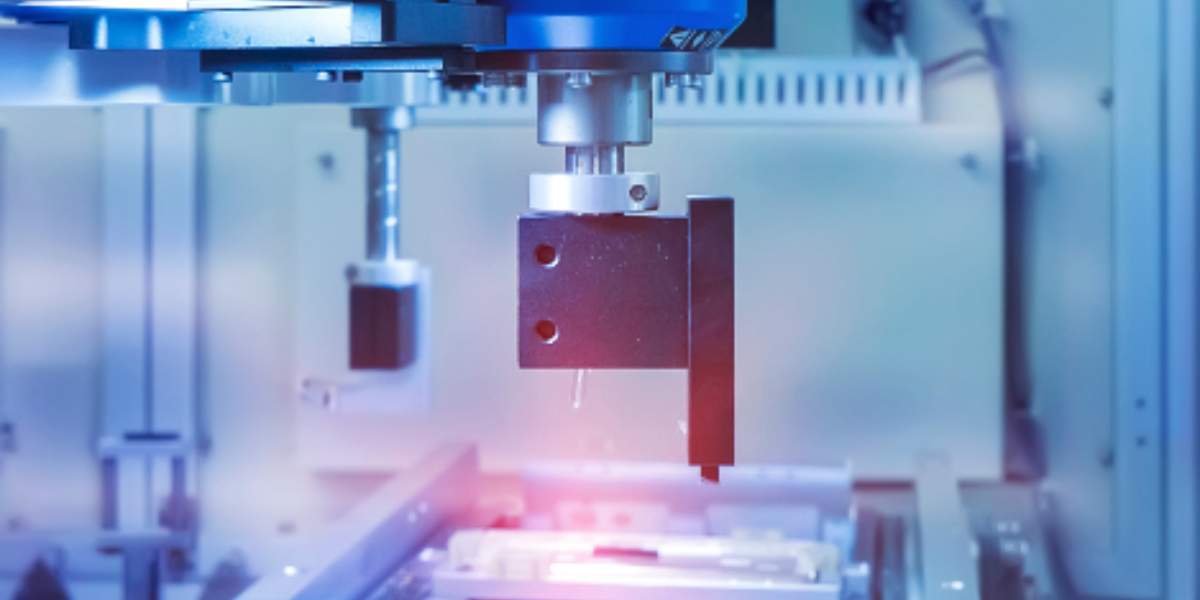How government can boost manufacturing SMEs – and lift productivity – through adoption of advanced technologies
SMEs are critical to NSW and Australia’s manufacturing landscape and are vital to economic renewal. However, manufacturing SMEs have struggled to increase productivity by harnessing advanced technologies. As government deepens its focus on industry policy, here’s how to fix that.

30 September 2024
The Australian economy faces a slowdown, with productivity growth and domestic manufacturing declining in recent decades. This is a grave concern to the NSW Government, which is developing a new industry policy and an Innovation Blueprint and has identified manufacturing as a key enabler of greater productivity and economic resilience. The expansion of Minister Courtney Houssos’ portfolio to encompass domestic manufacturing and government procurement in September 2023 further underlines the government’s commitment to boost manufacturing. At the federal level, the prime minister has committed to the Future Made in Australia Act, which aims to bring together new and existing initiatives to boost investment, create jobs and seize economic opportunities.
So, how can the NSW Government reverse declining productivity, recharge the state’s manufacturing capability and drive productivity growth?
The importance of manufacturing SMEs
An obvious focus area is increasing the uptake of advanced technologies in manufacturing SMEs. In a recent policy fellowship at the James Martin Institute for Public Policy, I explored the potential of advanced technologies (specifically Industry 4.0 technologies) to boost SME manufacturing. My research found clear opportunities available to the NSW Government.
SMEs are critical to NSW and Australia’s manufacturing landscape and are vital to economic renewal. In 2022-23, NSW accounted for 30 per cent of both revenue and labour in Australian manufacturing. SMEs dominate NSW’s manufacturing capability, making up 99 per cent of manufacturing firms in the state.
Advanced technologies are widely accepted as a critical driver of productivity growth. The 2022 Adaptive NSW report concluded that broad adoption of Industry 4.0 technology by firms could increase the state’s productivity growth from 1.2 to 2.0 per cent per year.
But why the slow uptake?
Despite the widely acknowledged benefits of advanced technologies, manufacturing SMEs have been slow to adopt them. This represents a missed opportunity. The reasons for this slow uptake are manifold – but not insurmountable.
Many manufacturing SMEs have faced challenges in developing organisational capabilities that support Industry 4.0 technologies. These challenges include specific leadership capabilities, people, skills and experience, financial capability, and innovation capability. This has contributed to a significant digital readiness gap between large and small firms.
A lack of financial resources, an absence of in-house digital expertise in many SMEs, and time constraints have also limited the scale of digital transformation. There is a compelling case for supporting managers in SME manufacturing firms to develop more confidence in using advanced digital technologies in their operations.
The situation is exacerbated by the sheer diversity of manufacturing SMEs, limiting the scope for off-the-shelf products to meet the needs of individual firms. SMEs are also disadvantaged in bargaining with technology suppliers and in their ability to make significant financial investments in technology.
Opportunities to accelerate adoption of advanced technologies
Industry 4.0 technologies offer manufacturing SMEs the chance to improve performance and become more efficient, resilient and sustainable. Advanced technologies can boost operations and supply chain resilience in volatile and uncertain environments. They can also support the development and implementation of circular economy strategies to achieve net zero environmental performance. And with manufacturing in NSW the engine room for Australia’s manufacturing performance, the nation’s productivity will also benefit.
My research identified four key opportunities for the NSW Government to support manufacturing SMEs to embrace advanced technologies and generate productivity gains for NSW and Australia more broadly.
- Establish a NSW-SME-Centric Manufacturing Centre to improve SMEs’ confidence, knowledge and perceptions of manufacturing front-end technologies. The Centre could work with local government areas that have a high density of SME manufacturers or manufacturing industries with a strong growth appetite.
- Provide a technology advisory program for SMEs which spans technology selection to implementation and offers unbiased guidance to SMEs on the technological options available to meet their specific needs. Vocational and higher education institutions could provide services alongside industry experts to support SMEs with technology selection and implementation.
- Enhance knowledge exchange through an industry secondment program which could enable technology experts from large firms with experience of technology implementation to work with manufacturing SMEs to identify how technology could be better leveraged or upgraded. The NSW Government could partner with industry to co-fund or facilitate a pilot industry secondment program.
- Introduce a technology leasing program to increase SMEs’ access to Industry 4.0 technologies and reduce financial risks. The scheme would need to garner buy-in from financial institutions, technology providers and independent technology advisers.
An Industry 4.0 future for NSW manufacturing
Taken together, these actions would improve perceptions of Industry 4.0 technologies in manufacturing SMEs and enhance the end-to-end support available for making best use of them. They would also facilitate the sharing of technological expertise across the manufacturing community and increase the accessibility of technological solutions.
In the bigger economic picture, these concrete steps to revitalise SME manufacturing firms in NSW will help to reverse Australia’s decades-long productivity slowdown.
Dr Dilupa Nakandala is an Associate Professor of Management and Associate Dean Graduate Studies at the School of Business, Western Sydney University (WSU).
She recently completed a JMI Policy Fellowship with the release of a report, Recharging SME manufacturing in NSW, which explores the challenges SMEs face in adopting Industry 4.0 technologies and outlines steps the NSW Government can take to overcome them.
Image credit: Kinny/Getty Images
Subscribe to The Policymaker
Explore more articles
Rys Farthing and Lorna Woods
Explore more articles
Rys Farthing and Lorna Woods
Subscribe to The Policymaker







